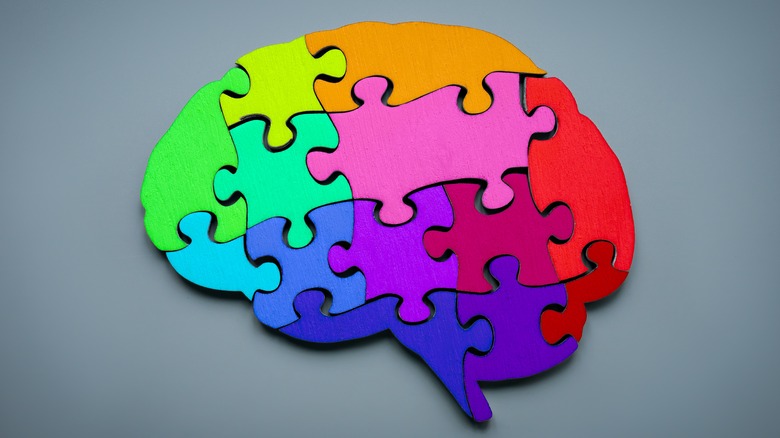The brain is full of different parts and pathways that control how we function and experience the world. However, not everyone’s brains work the same way. According to a 2024 research article published in the British Medical Bulletin, between 15% and 20% of the population is considered neurodivergent. That means their cognitive functioning is different compared to neurotypical people (per Cleveland Clinic).
Neurodivergence isn’t a medical condition, nor is there a defined standard for what is considered “typical” or “normal.” There are some diagnosable conditions commonly associated with neurodivergence, however. According to the 2024 National Symposium on Neurodiversity at Syracuse University, these include dyspraxia, dyslexia, attention deficit hyperactivity disorder, dyscalculia, autistic spectrum disorder, Tourette syndrome, and other conditions related to neurological development.
Becoming aware of neurodiversity can help normalize differences, boost confidence and self-esteem in neurodivergent people, and inform how leaders (such as teachers and employers) offer support (per Medical News Today). And awareness starts with understanding the signs of neurodivergence to look for.
Signs you might be neurodivergent

According to Cleveland Clinic, the best way to find out if you’re neurodivergent is to speak with a medical professional who can test for learning disabilities and other cognitive and neurodevelopmental conditions. Your primary care doctor can provide a referral.
However, there are some common symptoms that might signal neurodivergence. For many people, these are often challenging symptoms, such as reading or writing difficulties, poor motor skills, sensitivity to crowds and other stimuli, trouble focusing, and struggling to connect with and relate to peers (per Exceptional Individuals).
On the other hand, some signs of neurodivergence can be advantageous. WebMD explains that, depending on the condition, neurodivergent people might be more spontaneous, empathetic, detail-oriented, visually inclined, or skilled in a specific area or interest.
Keep in mind that neurodivergence exists on a spectrum and can vary greatly depending on the person. Several distinct factors, such as gender, social environment, genetics, and age, can play a significant role in how the symptoms of neurodivergence show up (per Psychology Today).
If you suspect that you learn or interact with the world differently than others, talk to your doctor about your concerns. Though neurodivergence isn’t a weakness — and in fact it can be a strength — getting a proper diagnosis might help you better understand yourself and your needs.




